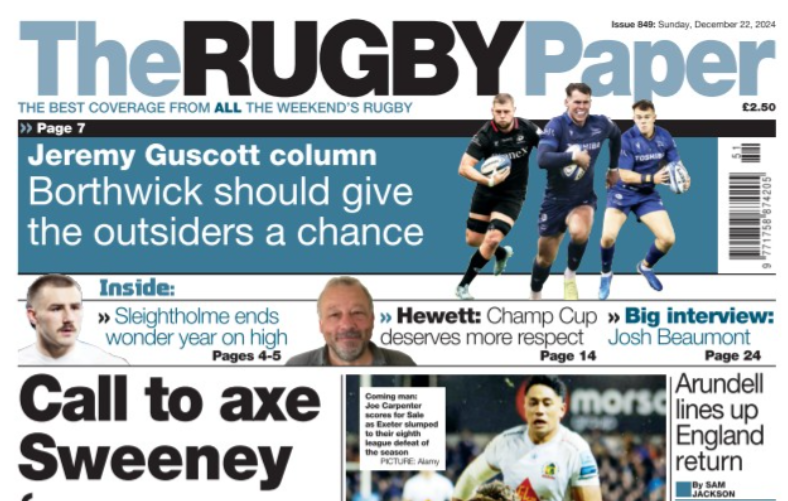The start of 2023 marks a significant and enthralling milestone for rugby fans given that we have officially entered a World Cup year. Yes, in less than nine months, the eyes of the globe will be on the Stade de France during the opening game of the competition as hosts France take on New Zealand. In effect, this will be the beginning of a six-week showdown in which eleven other nations will be going all out to dethrone South Africa, who will touch down at Charles de Gaulle Airport as the defending champions. Crucially, the Springboks will also do so with a new official kit sponsor on their shirts. More on that shortly.
On the backs of the Boks
The Boks, do, of course, have a 100 percent success rate when the World Cup has been hosted in France, having won the 2007 showpiece after beating England 15-6 during the final in Paris. Notably. When John Smit lifted the Webb Ellis Cup on that occasion, he did so in a shirt that was made by Canterbury.
Twelve years after that, Siya Kolisi did the same in a jersey that was manufactured by Asics after the Boks won the final in Yokohama against the same opposition. Why does this matter? In short, the biggest clothing manufacturers on the globe have always gone all out to be aligned with South Africa during a World Cup year owing to how prolific they are at winning the event.
Of course, these clothing brands aren’t alone in utilising the exposure that a tournament of this magnitude brings when you take into account that almost every industry shifts its focus when a World Cup takes place, regardless of the sport. As a better example of this unique trend, you only need to cast your mind back to these online casinos that are found on this BonusFinder in the UK page that are currently offering free spins to new customers. Indeed, at the time, these aforementioned online casinos marketed World Cup football slot games during the playing of the event in Qatar. As you can see, most brands don’t miss out on the opportunity to follow the trend during a World Cup by adopting a topical theme. This can be observed over time with sports clothing companies and South Africa.
The only exception came in 1995 when the Boks did not have a sponsor as the country’s democracy was only a year old. At the time, the Springbok shirt was seen as an oppressive symbol of South Africa’s past, and brands, understandably, didn’t want to associate.
Following some of the most moving scenes ever witnessed in the history of sports, Nelson Mandela would walk out onto the Ellis Park pitch moments before kick-off in the final against the All Blacks in a South African rugby jersey. The rest, as they say, is history. Yes, the Boks went on to beat New Zealand and soon after that, Nike would announce a bumper deal with the Boks as their official kit manufacturer from 1996 onwards.
It was a relationship that would span seven years and was only brought to an end after the conclusion of the 2003 World Cup in Australia, which England won.
Just do it (but never in the World Cup)
As for the results over this time, the answer has to be mixed. Above all, it should be said that the Boks were unable to win a World Cup with the Nike swoosh on their shirts despite playing in two. In addition to an underwhelming run at the World Cups, South Africa would end up losing to the All Blacks at home for the first time and also went on to lose a series against the British and Irish Lions in 1997.
However, it wasn’t all bad given that under Nick Mallet’s management the Boks would set a World record when they won 17 Tests in a row between August 1997 and December 1998. This sensational run of form also helped Mallet’s charges win the 1998 Tri-Nations tournament.
However impressive these numbers were under Mallet while being sponsored by Nike, there is only really one conclusion that Springbok fans draw: World Cup failure.
So, you can understand why a few eyebrows were raised when it was announced that Nike would take over the manufacturing duties of Springboks jerseys from Asics just six weeks before the start of the 2023 World Cup in France.
🚨 BREAKING! The famous swoosh will be back on the green and gold when @Nike returns as SA Rugby technical apparel provider in 2023 – more here: https://t.co/R01CTRVyr3 pic.twitter.com/ZDf60o9pI6
— Springboks (@Springboks) September 26, 2022
It is a development that undoubtedly plays more on the minds of superstitious South African fans in the same way that English football supporters groan when ITV is set to broadcast one of their World Cup games, with the Three Lions winning just three out of 17 games at the global showpiece when playing on the free-to-air channel.
How valid are these suspicions in South Africa’s case? We’ll soon find out as the Springboks try to win their second World Cup in France with a Nike swoosh displayed on their shirts.























